To celebrate both International Day of Action for Trans Depathologisation (22 October) and Intersex Awareness Day (26 October), SPW shares articles, news and campaigns aimed at highlighting challenges and struggles endured by intesex and trans people amidst several forms of biomedical controls and social stigma undermining their dignity, autonomy and welfare.
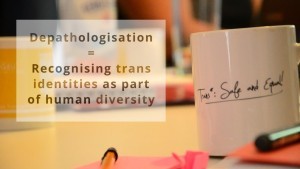 Making It True – Global Action for Trans Equality (GATE)
Making It True – Global Action for Trans Equality (GATE)
Today, Global Action for Trans Equality (GATE) joins this annual Day of Action for Trans Depathologization by making a global call to end the systematic violation of our human rights. Read the full statement.
End violence and harmful medical practices on intersex children and adults, UN and regional experts urge – UN Human Rights Office of the High Commissioner
In countries around the world, intersex infants, children and adolescents are subjected to medically unnecessary surgeries, hormonal treatments and other procedures in an attempt to forcibly change their appearance to be in line with societal expectations about female and male bodies. When, as is frequently the case, these procedures are performed without the full, free and informed consent of the person concerned, they amount to violations of fundamental human rights. Read the full statement.
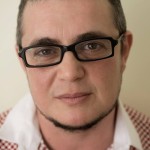
IAD2016: A Message from Mauro Cabral – GATE
When I was born 45 years ago, as happens very often, there was no sign of me being intersex. I was assigned female and raised as a girl. Only in puberty was it found that my body was somehow different from other female bodies. Read more.
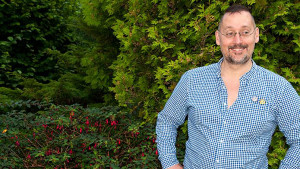
Thinking outside the box – Intersex Day
Focusing on what we share in common: boxes and identity, harmful practices, activism and pinkwashing in Australia, by Morgan Carpenter. Click here.
Intersex Ed at the UN – Huffington Post
It’s the first question many new and expectant parents hear from their families, friends and co-workers. And more than 98 per cent of the time, the answer’s clear cut: it’s one or the other. But what about the rest of the time? Studies suggest that up to 1.7 per cent of babies are born with intersex traits, which means they have chromosomes, hormones or, in some cases, genitals that don’t fit typical definitions of male or female. That’s up to two million babies born every year with intersex traits. Read the full article.
Intersex activism in Turkey – Intersex Day
Şerife and Belgin talk with Kaos-GL about the situation of intersex people in Turkey, bodily interventions without consent and the influences of these on activism. Click here to read the interview.
Love, complexity and inter-sectionality – Intersex Day
Sean Saifa Wall reflects on growing up Black, queer and intersex. Whenever I talk about my intersex story, I cannot 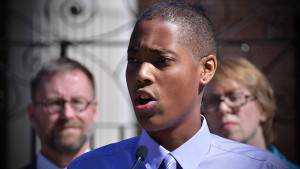 help but to talk about my parents. Although I was a “save-the-marriage” baby, in the true tradition of Roman Catholics, my parents got down on their knees and prayed for me. When I have talked to some intersex people, especially a couple of people in my family, they see their intersex trait as a curse, which is ironic given my conception; the universe saw fit to bless my parents with an intersex child. Read more.
help but to talk about my parents. Although I was a “save-the-marriage” baby, in the true tradition of Roman Catholics, my parents got down on their knees and prayed for me. When I have talked to some intersex people, especially a couple of people in my family, they see their intersex trait as a curse, which is ironic given my conception; the universe saw fit to bless my parents with an intersex child. Read more.
UN Free & Equal: Intersex Awareness
Intersex people are born with sex characteristics that don’t fit typical definitions of male and female. In many countries, intersex children are subjected to repeated surgery and treatment to try to change their sex characteristics and appearance, causing terrible physical, psychological and emotional pain – and violating their rights. Intersex children don’t need to be “fixed”; they are perfect just as they are! Watch UN video campaign.
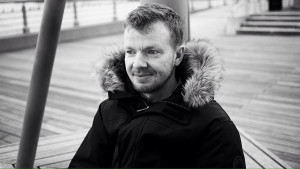 Breaking the ice: intersex in Russia – Intersex Day
Breaking the ice: intersex in Russia – Intersex Day
Aleksander Berezkin on how intersex people have shifted from being imperial curiosities to people with disabilities, and on creating new, non-pathologising ways of being intersex. Read more.
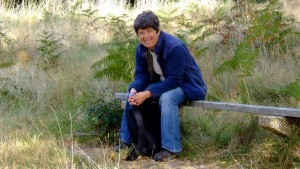
I want a language that speaks the truth, by Leslie Jaye – Intersex Day
Memories and remembrances of an intersex survivor in the UK, by Leslie Jaye. “Long ago, but not so long ago that it is beyond living memory there existed an era during which being intersex was officially denied, whilst all the while doctors pretty much did as they pleased. Left to their own devices doctors preferred we were all none the wiser. I grew up in those long, dark years of silence, lies and evasion”. Read the full article.
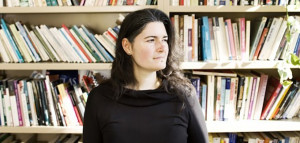
How medical discourse dehumanizes intersex people – Intersex Day
Medical discourse on intersex voices is an integral part of the management of intersex bodies, writes Janik Bastien Charlebois. “Many of us also became painfully aware of how pathologizing language hurts us by providing legitimacy underpinning unconsented interventions and casting us as beings whose difference is the result of failure. The implication is that, in a perfect world, we should not exist”. Read here the analysis.

Language is vital – Catherine Graffam
The way the intersex community has developed and reappropriated language is a beautiful evolution. Much like queer and other marginalized communities, we have used terms that traditionally stigmatize and oppress us as a vehicle of empowerment. Read here the full article.
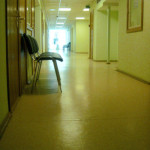 I Discovered I’m Intersex from the Buzzfeed Video – InterACT
I Discovered I’m Intersex from the Buzzfeed Video – InterACT
My doctors never talked to me. And my father kept everything secret from me for 7 years. Last year I discovered the truth because of the “What It’s Like To Be Intersex” Buzzfeed video – and it was the best thing that ever happened to me. Read here.
Astraea Lesbian Foundation for Justice: Meet our 2016 Intersex Human Rights Fund grantee partners
This #IntersexAwarenessDay, we’re proud to grant $200k to 32 incredible organizations in 27 countries all over the world. From Nepal to Nicaragua, from documentaries to legal advocacy against intersex genital mutilation, our 2016 #IntersexFund grantee partners are doing incredible work to change the international landscape of #intersex human rights and awareness this #IAD2016 and every day.
WHO: put human rights at the core of the ICD revision – Transgender Europe and ILGA-Europe
The current International Classification of Diseases of the World Health Organisation classifies trans identities as mental and behavioural disorders. In 2018, the ICD-10 will be replaced by the new ICD-11. After almost a decade of activists’ campaigning and advocacy work, the World Health Organisation is moving towards declassifying trans identities as mental disorders. We continue to call for this removal, as well as for the dismantling of all forms of stigma, discrimination and violence associated with mental illness. Click here to watch the video.
Share Your Story – Transgender Europe
TGEU is collecting the stories of trans people’s experiences of pathologisation. Pathologisation can be described as “viewing or characterising behaviour as medically or psychologically abnormal”. Click here to share your history.
